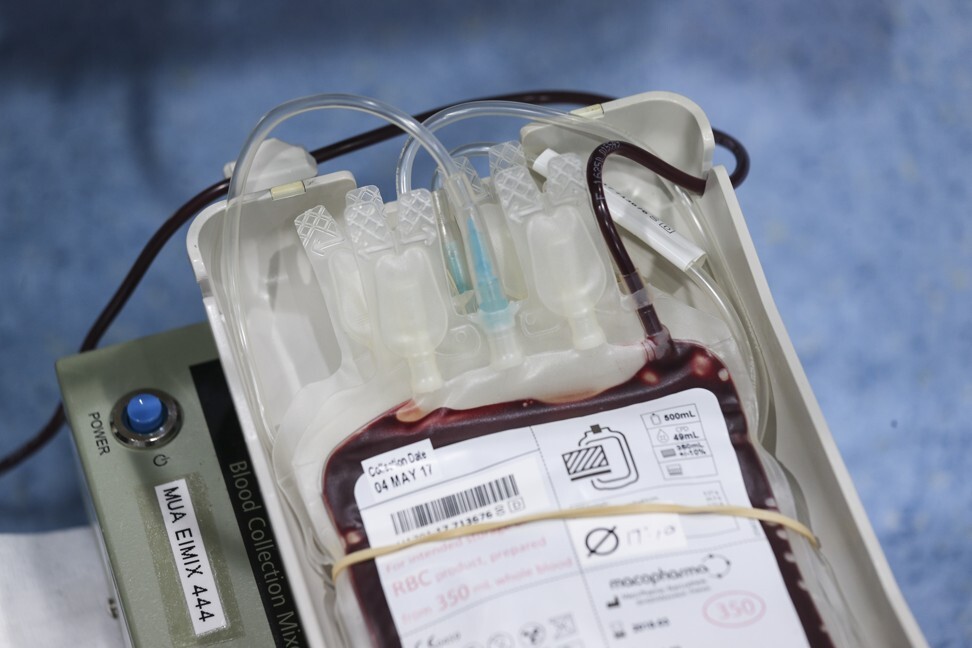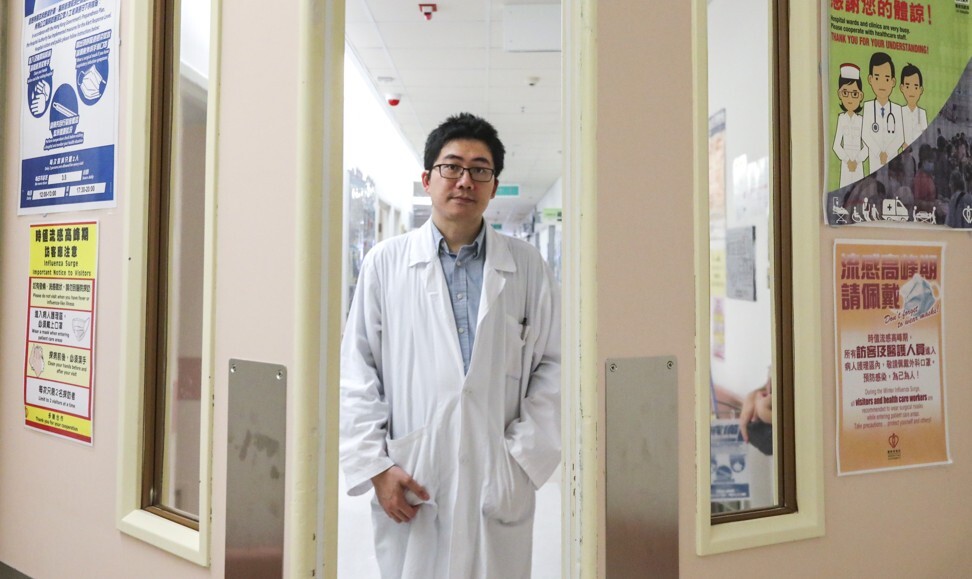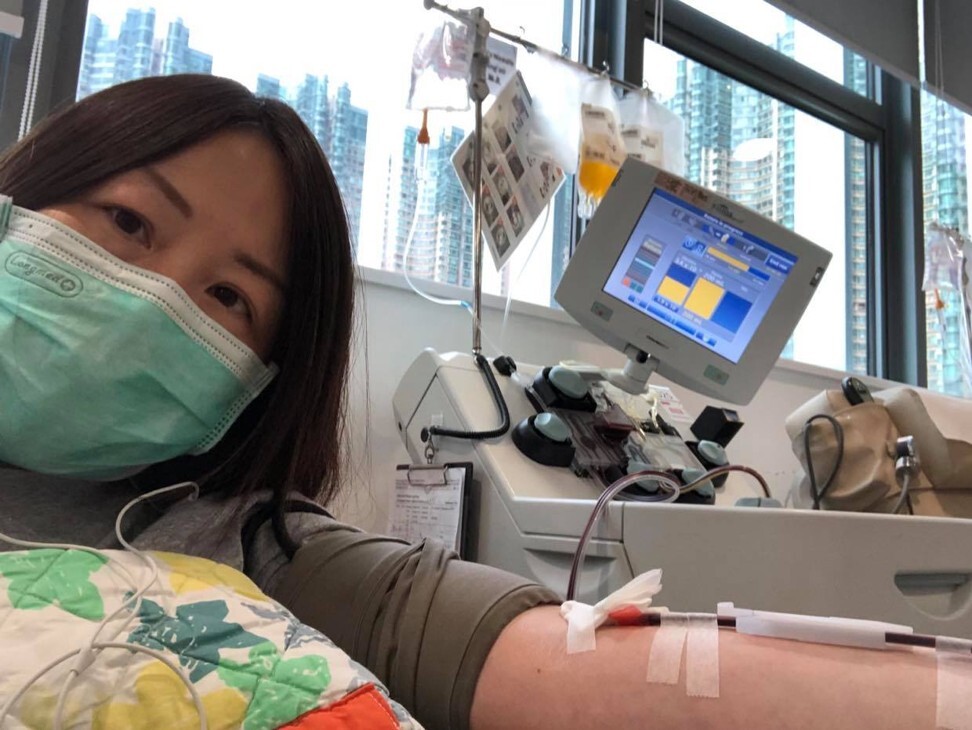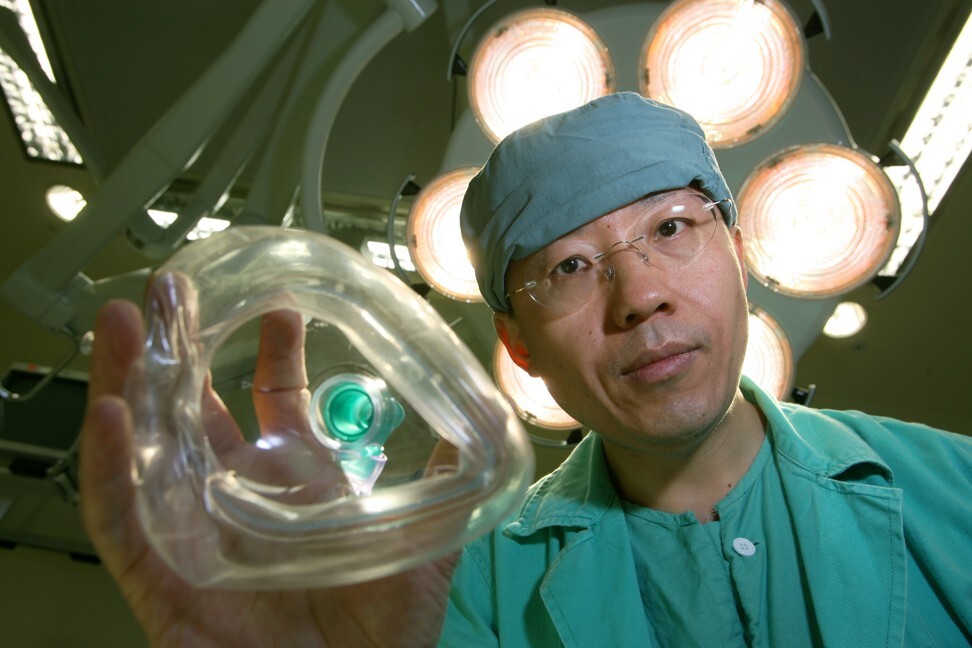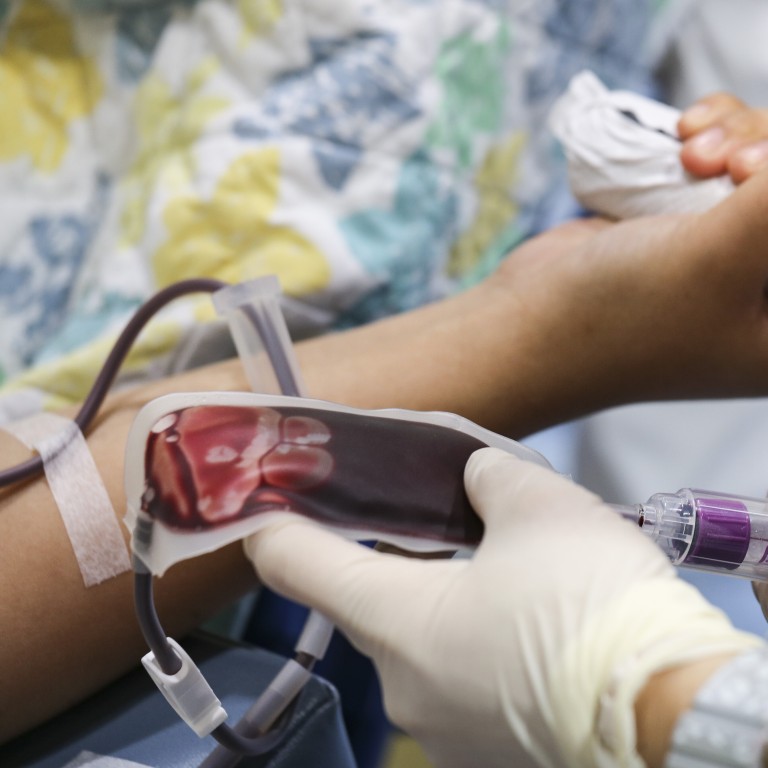
Hong Kong blood bank makes urgent appeal as Covid-19 pandemic fears keep donors away, supplies dry up
- Hospitals find it harder to get supplies as collection drops at Blood Transfusion Service
- Donors are still stepping forward, but supplies remain insufficient to meet patients’ needs
Mother-to-be Katie Yung was 35 weeks into her pregnancy and counting down to giving birth when she learned she had a potentially life-threatening condition.
Her doctor told her she had severe placenta previa, which can cause severe bleeding during childbirth, and she might need a blood transfusion to avoid complications that could lead to a stroke or even death.
Red Cross in urgent blood donors appeal as supplies dwindle
With blood stocks running low in Hong Kong because of the coronavirus pandemic, a worried Yung went on Facebook to make an appeal to her friends and the public.
“The doctor said there would be no other means if there was no blood. I’m so scared,” she said in her post. “Could you and your friends please go to donate some blood? There are a lot of people who need blood.”
Her post on July 31 was shared more than 500 times, and drew about 200 comments, including good wishes and encouragement, as well as pledges to donate.
The city’s blood supply has been depleted as fear of Covid-19 infection has deterred donors, and the confinement and social-distancing measures have disrupted blood donation services. Blood supply relies entirely on voluntary donations.
The Hong Kong Red Cross Blood Transfusion Service (BTS), the only public institution delivering blood to all public and private hospitals, says collection has dropped significantly since the surge in Covid-19 infections in July.
It is collecting only about 200 units of blood daily, less than half the daily demand of about 500 units. It used to collect about 600 to 800 units a day before the pandemic.
There are four blood types – A, B, AB and O – and supply fell so low in late July that there were only three to four days’ stock available. BTS made an urgent appeal and although donors stepped forward, there is only about five to six days’ supply available, and stocks remain low.
Some donors might have been put off by news that two donors and a staff member of the Hong Kong Red Cross were confirmed to be infected with Covid-19.
But BTS says both donors were asymptomatic and passed all screening criteria, and may have contracted the coronavirus after they donated blood.
Samples of the blood they donated, as well as the patients who received their blood, all tested negative for Covid-19, it adds.
Appealing for more donors, its spokesman says: “A sufficient and steady blood supply is crucial for critical surgery such as organ transplants and emergency operations, as well as to meet demand from patients with blood disorders such as thalassemia and blood cancer.”
Harder to get blood for surgery
Dr James Fung Tak-kwan, a general surgeon at Pok Oi Hospital in Yuen Long, says he has felt increasing pressure from the blood shortage, especially since the end of July.
It has become difficult to reserve blood for major operations, he adds, as the blood bank now requires doctors to request blood unit by unit in separate orders, instead of being allowed to ask for more units at once.
“The shortage is reflected in our daily practice,” he says. “Our reservations are cancelled, and when we ask for blood, they won’t give it to us in generous amounts.”
As a result, doctors have had to use unmatched blood for transfusions in emergencies, usually type O negative – the so-called “universal blood type” – despite the risk of adverse effects, he says.
Some non-urgent procedures have been delayed or cancelled, and in other cases, doctors have had to resort to alternative treatments.
“We have been able to cope with the shortage of blood supply for the time being, but if the shortage continues, more serious problems may occur,” Fung says.
Blood centres open, ready for donors
BTS says all the donor centres remain open, and its mobile blood donation vehicle is still operational, but other mobile and group donation activities have been affected by school closures and people working from home.
Since mid-March, BTS has introduced various pandemic-related precautionary measures.
Potential donors who have travelled outside Hong Kong or had close contact with a confirmed Covid-19 case are asked to put off donating for 28 days, while anyone who has been infected is asked to wait for 180 days after complete recovery before donating again.
All blood collection sites are thoroughly disinfected, and donors are required to wear masks, have their temperatures checked and sanitise their hands before entering.
Solution to low blood donation rates in Hong Kong starts with the kids
Donors are advised to make an appointment by calling or via its HK Blood mobile application to avoid gathering at the centres, and to inform BTS if they develop respiratory symptoms after donating blood or are considered close contacts of Covid-19 cases.
Among those who have responded to the appeal for blood is regular donor Emily Le Wai-yu, who gives blood almost monthly at the West Kowloon Donor Centre.
An auditor in her 40s, she became a donor at 16, when her school organised a blood donation drive, and has since donated 90 times.
She remained a regular donor especially after her grandmother, then in her 70s, suffered from gastrointestinal bleeding and needed a transfusion urgently about 20 years ago.
“Seeing how a transfusion helped my grandmother prompted me to keep donating to save others,” she says. “Donating blood can help people, without affecting my own health.”
Le says she maintains a healthy diet and exercises to keep fit, so that she can remain a donor.
She has been donating blood every month during the pandemic, and has encouraged her colleagues to do so too. As long as she takes safety precautions, including wearing a mask and washing her hands frequently, she is not worried about the risk of contracting the coronavirus.
Lions Clubs International District 303 – Hong Kong and Macau, China, a community service organisation, kicked off a month-long blood donation campaign on August 7, encouraging its 2,100 members and the public to step forward.
Hong Kong set to build at least two temporary Covid-19 hospitals
Its district governor, Dr John Leung Lai-yin, is a regular donor and gave again on August 7 at the Mong Kok Donor Centre.
Calling on more people to help save lives, he says: “I have been doing this because there are people who need blood.”
His organisation has been working closely with BTS, and contributed a mobile blood donation vehicle, which started operation in April 2019.
Blood supply shortage a long-term problem
There have been shortages of blood supply from time to time, and experts expect demand will continue to rise given Hong Kong’s ageing population.
Aside from depending on donations, the city can also consider ways to keep down the demand for blood, says anaesthesiologist Dr Chow Yu-fat, president of the Hong Kong Society of Clinical Blood Management.
The society has been recommending better patient blood management through boosting and conserving patients’ own blood. A local hospital study done between 2015 and 2017 showed that this could result in shorter hospital stays and reduce the need for a blood transfusion by two-thirds.
Chow says eating iron-rich food, such as spinach and red meat, and exercising regularly can help reduce the need for a transfusion during surgery.
Doctors could also collect a person’s blood during surgery and transfusing it back to the patient, or use medicines instead, he says.
Given the shortage of donations, Chow says: “The challenge is growing bigger. We should cherish our resources of blood.”



